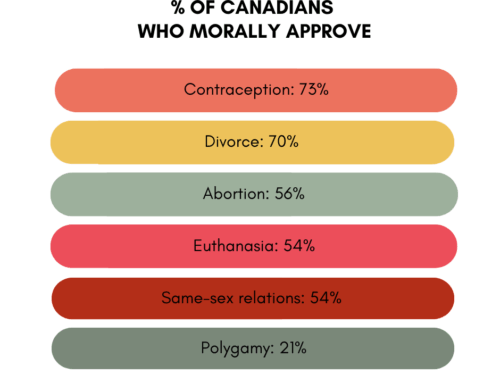By Paul Tuns
Justice Minister David Lametti sought a third extension from a Quebec court to enable a full Senate debate and vote on Bill C-7, which expands eligibility for euthanasia and doctor-assisted suicide and passed the House of Commons in a 212-107 vote.
The Liberals, NDP, Bloc and Green parties voted en masse for C-7 and were joined by 15 Conservative MPs; 104 Conservatives voted against it and they were joined by a pair of Liberals, Nathaniel Erskine-Smith and Marcus Powlowski, and independent MP Jody Wilson-Raybould. Erskine-Smith voted against C-7 because he found it too restrictive while Powlowski, a medical doctor, opposed it because he was worried that it did not sufficiently protect patients from transitive thoughts about ending their life.
C-7 was passed on Dec. 10 on third reading after the Conservatives had filibustered the bill for days. Several Conservatives were seeking amendments to protect patients from being coerced into euthanasia and provide conscience protection for health care workers. The government was able to defeat each of the amendments.
In October 2019, Quebec Superior Court Justice Christine Baudouin said that the 2016 law permitting euthanasia or so-called Medical Aid in Dying which limited eligibility for medicalized killing to people whose death was reasonably imminent was unconstitutional. She gave the federal government six months to amend the law to comply with her decision, but that deadline was extended twice, the first because the government said there was insufficient time to debate the new law and the second due to the COVID-19 pandemic. On Dec. 11, days before the second extension deadline, Lametti asked the Quebec Superior Court for an extension. On Dec. 21, Justice Christine Baudouin granted an extension to Feb. 26.
With the tight deadlines, the Senate’s legal and constitutional affairs committee began pre-hearings on C-7 before the House of Commons passed the bill. C-7 amends the Criminal Code to permit euthanasia when death is not reasonably imminent, eliminating both the 10-day waiting period between a euthanasia request and it being carried out, and the requirement that a request be made before two witnesses, in favour of just one. It creates a new class of eligibility for euthanasia for those who experience physical or psychological pain, although the government denies the new law would permit euthanasia for mental illness alone. Non-terminally ill patients requesting euthanasia would have to wait 90 days before they could be killed by a doctor. C-7 would also allow advanced directives so that mentally competent people can access euthanasia after they become otherwise incompetent to request the lethal procedure.
In October, a petition signed by more than 600 physicians, noted the government was scuttling safeguards that just four years ago were deemed essential. C-7, the petition said, expands euthanasia “to virtually everyone who is sick and suffering in Canada.”
Wilson-Raybould, who helped usher through the government’s first euthanasia law in 2016 as justice minister, voted against C-7 because she was concerned about dropping the 10-day wait after requesting euthanasia. She noted that nothing in the Quebec decision required this amendment. Liberal MP Powlowlski said “my biggest concern … is that we don’t end up using MAiD for people who don’t really want to die.” He said given “a bit more time, people may come around to the fact that there are reasons they want to live.”
Michael Cooper, a Conservative MP, said “I think it’s just a matter of common sense that someone should be able to have the time to reflect upon making a request that, if carried out, results in the termination of their life.” Lametti said that “people who have made the decision … have made up their mind,” a sentiment echoed in the House justice and human rights committee hearings by Medical Aid in Dying “assessors.” Dr. Stephanie Green said it was “not a decision they take lightly.” But numerous doctors have said their experience shows that terminally ill patients or those suffering non-lethal maladies, often experience depression that can cause a temporary desire to die. And Dr. Ebru Kaya of the Canadian Society of Palliative Care Physicians, said that proper palliative care can take longer than 10 days to arrange.
Romayne Gallagher, a retired palliative care physician and clinical professor at the University of British Columbia, wrote in Policy Options in October, that when a patient with a “chronic life-limiting disease has persistent suffering that goes untreated, they can become depressed and hopeless,” and “lead people to request Medical Aid in Dying.” She called the conditions leading to the request a “medical error” and blamed a lack of timely palliative care. She said too many patients are not accessing palliative care until they have requested euthanasia. She estimated that nearly 18 per cent of Canada’s 5,389 euthanasia deaths in 2019 were triggered by a request resulting from the suffering and despair from insufficient palliative care.
Pro-life, disability, religious and indigenous groups, as well as many doctors and palliative care specialists, have condemned C-7 as insufficient to protect vulnerable people and they say that the government is rushing to make it easier to access a medicalized death rather than provide the necessary supports to continue living.
But the pro-euthanasia lobby and its political allies claim the amendments do not go far enough to liberalize assisted-suicide. Several senators claim that C-7 would be deemed unconstitutional by the courts because it could be found to discriminate against those who have mental illness and want to be killed or those who have to wait 90 days to be euthanized. Several senators, including Claude Carignan (Conservative) and Pierre Dalphond (Progressive Senate Group) have publicly said C-7 probably violates the equality rights of the Charter. Conservative Senator Pierre-Hugues Boisvenu is proposing that the government remove the mental illness exclusion for up to two years, at which time the government could develop guidelines to kill people whose only ailment is mental illness. Carignan wants a two-year sunset clause on the mental illness prohibition. Lametti told the senate committee he wants to expand euthanasia in the future to allow patients suffering from only mental illness to be eligible for euthanasia but that there was “no consensus” on how to qualify eligibility at this time.
In 2016, the Senate amended the government’s euthanasia bill and sent it back to the House of Commons for reconsideration. It could do so again.
While a number of senators fret that C-7 does not permit enough killing, others want some safeguards.
Conservative Senators Denise Batters and Don Plett are expected to introduce amendments to protect vulnerable patients from being coerced to choose euthanasia. Plett is expected to try to convince the government to accept a change to the law that would prohibit medical staff from discussing euthanasia unless the patient initiates the discussion. Carla Qualtrough, Minister of Disability Inclusion, has indicated she is open to such an amendment. Other amendments could include guaranteeing patients not near-death requesting euthanasia be given mental health and disability supports, improvements to palliative care, and re-instating the 10-day waiting period between a dying patient’s request for assisted suicide and the procedure.
Tyler White, chief executive of Siksika Health Services in Alberta, said that the law “sends a contradictory message to our peoples that some individuals should receive suicide prevention, whole others suicide assistance.”
The Senate has yet to vote on amendments. Senator Marc Gold (Independent Senator’s Group) told Canadian Press that the Senate will likely not complete its examination of C-7 until mid-February.




